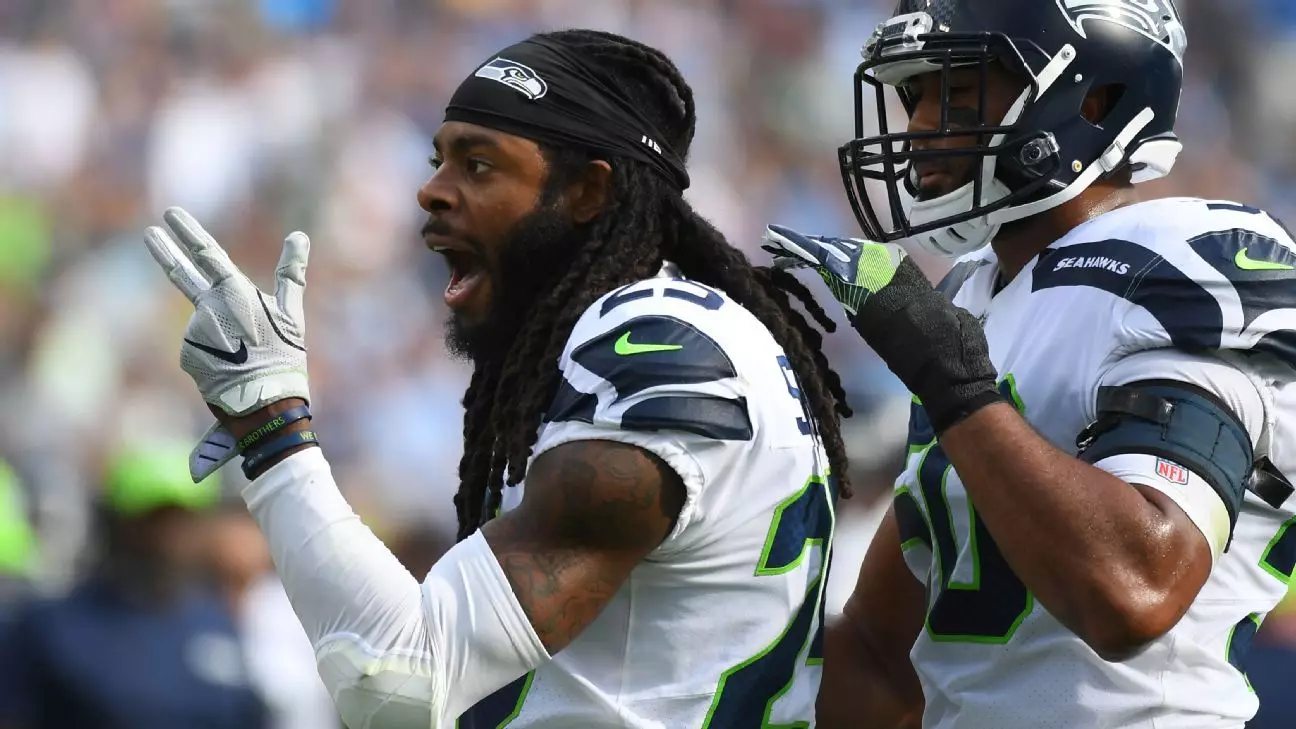In a shocking turn of events, the safety of professional athletes’ homes has come under siege as organized crime sets its sights on wealthy individuals. A recent case in Seattle has illuminated this disturbing trend, as 21-year-old Earl Henderson Riley IV faces multiple charges related to a string of burglaries targeting some of the city’s most prominent sports figures. These events not only raise serious questions about personal security for public figures but also point to a larger, systemic issue with crime imbibing neighborhoods where wealth congregates.
The details are grim: Riley has been implicated in an assortment of thefts, including the unsettling robbing of homes belonging to Major League Baseball stars like Julio Rodriguez and Luis Castillo, as well as former Seattle Seahawks cornerback Richard Sherman. What really strikes a nerve about these incidents is not just the staggering value of the loot—over $194,000 in purses and jewelry—but the profound violation of privacy and security that athletes now face.
Why Athletes Are Prime Targets
The core of this ongoing crime wave stems from the perception that athletes, equipped with lucrative contracts, possess significant wealth, making them prime targets for sophisticated criminal networks. Recent security alerts issued by the NFL and NBA have underscored the heightened risk athletes encounter, especially when traveling for games. As sports leagues mobilize resources to protect their stars, the question remains: why is this a growing trend?
Undoubtedly, the allure of high-end products, celebrity lifestyles, and sometimes emptied homes during road games create an ideal hunting ground for robbers. The FBI’s warning about organized crime targeting athletes only intensifies fears. Professional players are not just robbers’ targets due to their riches—they are symbols of success and aspiration, their homes often bursting with valuables.
The Community’s Reaction
The reaction from the community, law enforcement, and even sports teams has encompassed a blend of shock and urgency. With King County Prosecuting Attorney Leesa Manion asserting that “all people deserve to feel safe in their homes,” it prompts a broader discourse about the intersection of crime and celebrity. Athletes who once inspired others through their on-field prowess now find themselves navigating new concerns tied to their fame.
Moreover, the long-standing societal perception of athletes as invincible while performing at peak levels on the field starkly contrasts with their vulnerability off of it. The ripple effect of these burglaries extends far beyond the individuals involved—they challenge everyone’s sense of security, particularly in neighborhoods where such high-profile thefts happen.
Law Enforcement’s Tug-of-War
Behind the scenes, the monumental task of investigating such crimes involves multiple police jurisdictions collaborating in an effort to dismantle organized robbery rings. Senior Deputy Prosecuting Attorney Gary Ernsdorff has confirmed that the efforts to apprehend additional suspects is ongoing, indicating that the threats are not merely isolated incidents.
With Riley currently detained in King County Jail and awaiting arraignment, his case emphasizes the necessity for profound changes in security protocols—not just for athletes, but for anyone with considerable assets. Furthermore, it raises ethical questions about community responsibility and how far society should go to protect their stars, who themselves provide entertainment and distraction from everyday life.
While the immediate fallout from these criminal acts resonates deeply with those affected, the long-lasting implications extend into the very fabric of American sports culture. As athletes become increasingly aware of their vulnerability, a call for enhanced security measures must transcend from mere reactionary alerts to proactive solutions.
In an era where crime seems to victimize the very icons that bring joy and entertainment to people, the collaboration between law enforcement agencies, sports leagues, and community leaders may be our strongest line of defense—a pressing necessity as we navigate this ever-complex world, where fame and fortune can too often invite peril.

